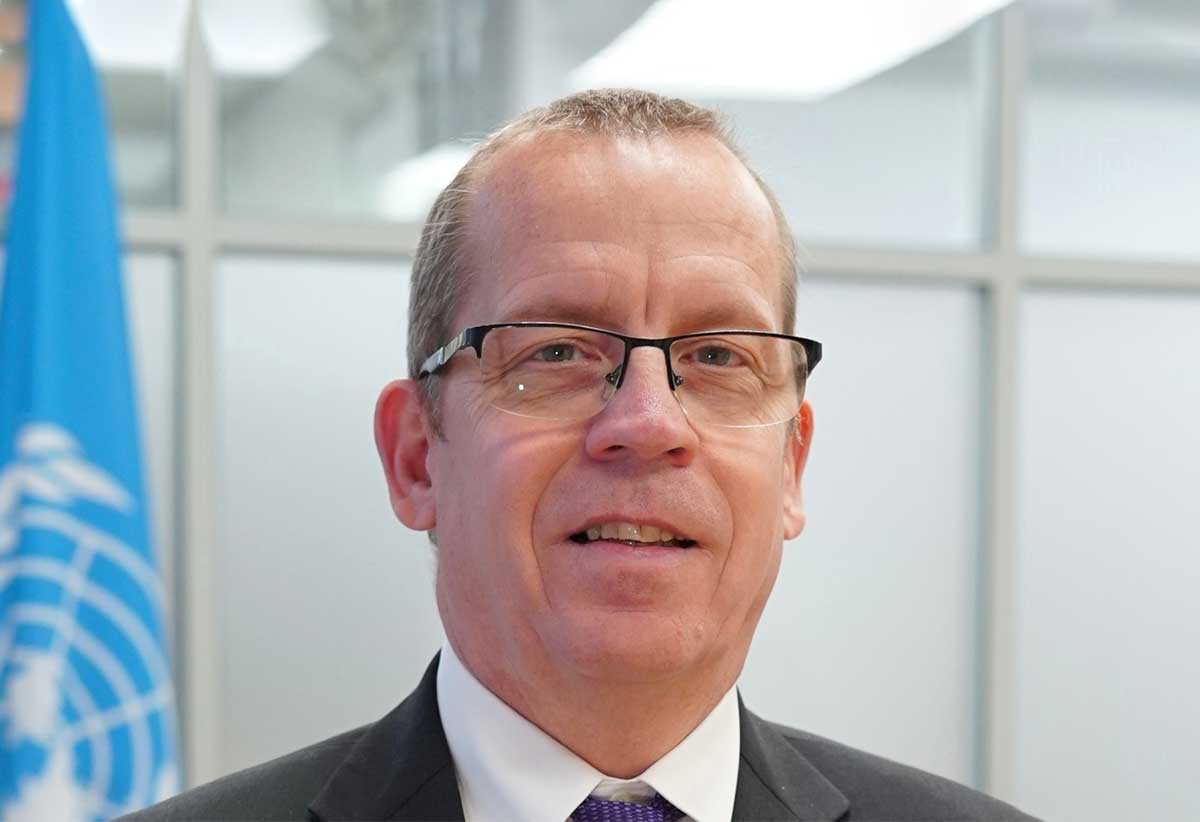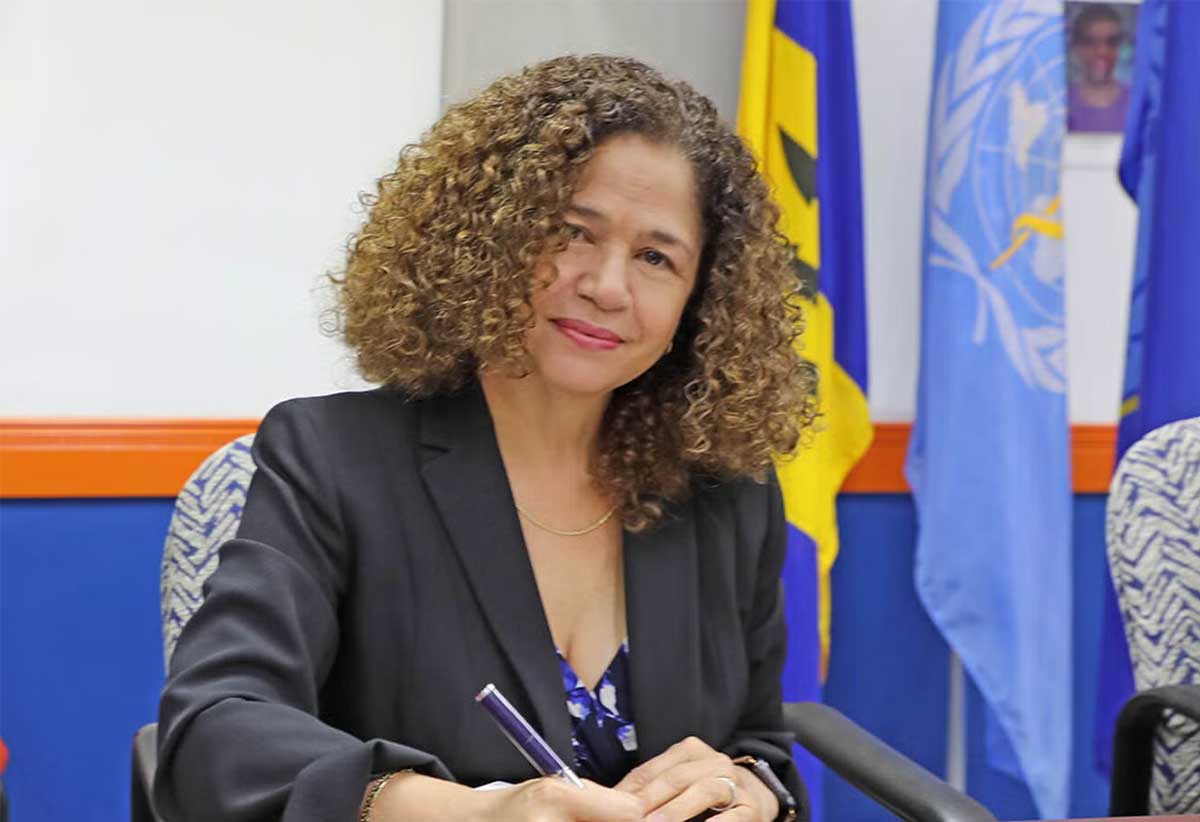
On International Universal Health Coverage (UHC) Day, we reaffirm our commitment to ensuring that every individual in Barbados and Eastern Caribbean countries can access the quality health services they need without financial hardship. Universal Health is not just about health, it is the foundation for equitable societies, resilient economies, and sustainable development.
For Small Island Developing States (SIDS), achieving universal health is a top priority but also a significant challenge. The vulnerabilities of SIDS, including geographic isolation, limited economies of scale, and disproportionate exposure to natural disasters and climate change, require tailored approaches to build resilient and sustainable health systems.
“Universal Health Coverage is more than a goal—it is the foundation for a resilient and inclusive future,” asserts Mr. Simon Springett, United Nations Resident Coordinator for Barbados and the Eastern Caribbean. “For the United Nations, UHC aligns directly with achieving the Sustainable Development Goals (SDGs), particularly Goal 3 on health and well-being. The UN system actively supports Caribbean countries by strengthening governance, expanding health infrastructure, and improving social protection systems to ensure no one is left behind.”
Primary Health Care: The Cornerstone of Universal Health
Strengthening Primary Health Care (PHC) is essential to achieving universal health, particularly in addressing the burden of non-communicable diseases (NCDs), which account for over 70% of deaths in Eastern Caribbean countries. PHC is the first line of defense against public health crises and ensures equitable access to services across underserved communities. It is a whole-of-society approach encompassing three interrelated components of integrated health services, community empowerment, and intersectoral actions.

Dr. Amalia Del Riego, PAHO/WHO Representative for Barbados and the Eastern Caribbean Countries, emphasizes that primary health care is not only about coverage but also about access, equity, quality, and sustainability. “It is a critical strategy for enhancing the health system’s capacity to withstand and adapt to external shocks, and one of the most effective paths to achieving universal health.”
Across the Eastern Caribbean, governments have prioritized NCD and mental health management and are integrating these into primary care, yet disparities remain, particularly in rural and underserved areas.
Building Resilient Health Systems
Frequent natural disasters and the COVID-19 pandemic exposed vulnerabilities in health systems globally, including in the Caribbean. The need for early warning systems, better surveillance, stockpiling of medical supplies, and robust response plans was evident. PAHO and the UN have supported governments in strengthening early warning systems, expanding vaccination campaigns, and integrating pandemic preparedness into national health policies. Additionally, the Caribbean Disaster Emergency Management Agency (CDEMA), with UN support, has improved regional coordination for health disaster management, ensuring faster and more effective responses.
Investment in building a resilient health system is a must for achieving UHC especially as countries continue to face severe hurricanes and climate-related emergencies. PAHO has been championing this cause through collaboration with other developmental partners through the Smart Health Facilities Initiative. This initiative has been a game-changer, retrofitting over 100 healthcare facilities across the region to be energy-efficient, environmentally sustainable, and disaster-resilient. Grenada and St. Vincent and the Grenadines experienced the devasting impact of Category 5 Hurricane Beryl in July 2024, which severely disrupted health services, and highlighted the urgent need for such resilient systems.
Dr. Del Riego notes, “Resilient health systems are the backbone of disaster preparedness and response, they ensure continuity of care when it is needed most. The UN’s efforts focus on building capacity at all levels, from community health workers to national emergency systems.”
Achieving the Sustainable Development Goals (SDGs)
Health is central to achieving all 17 SDGs, particularly Goal 3: Ensure healthy lives and promote well-being for all at all ages. Progress in UHC drives advancements in education, economic development, and gender equity, creating a virtuous cycle of sustainable growth. Yet, progress is uneven in the region. Barbados and Eastern Caribbean countries are tackling health inequities by expanding social protection programs, improving maternal and child health services, and addressing gender disparities in health access.
“Universal Health Coverage is not just a health issue; it’s a development imperative. Investments in health translate into stronger economies, cohesive societies, and greater resilience against global challenges,” Mr Springett maintains.
The Call to Action
This Universal Health Coverage Day, we call on governments, international organizations, and communities to prioritize health in national and regional agendas. Deepening investments in PHC, strengthening climate-resilient health systems, and ensuring health equity for vulnerable populations are essential to achieving the vision of Health for All. As we commemorate this day, let us commit to addressing the systemic barriers to UHC.
The UN family is united in its approach to advancing UHC in the Caribbean,” assures Mr. Springett. “By working together across sectors, we address health holistically, from ensuring safe food and water to providing technical and financial support for climate adaptation in health systems.”
As Dr. Del Riego aptly puts it, “Health is a fundamental human right, and achieving UHC is our shared responsibility. “By working together, we can build stronger, fairer, and more resilient health systems that leave no one behind.”













